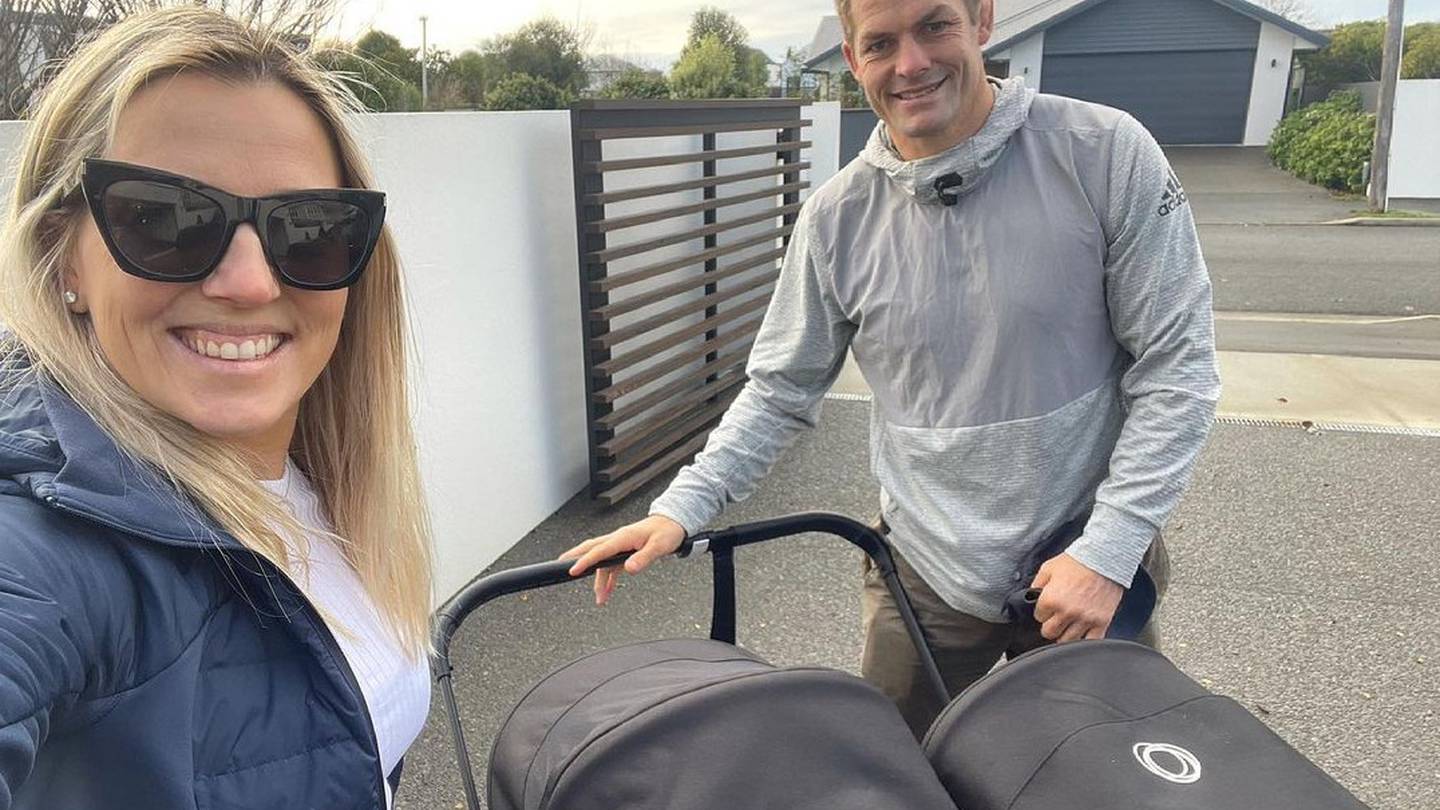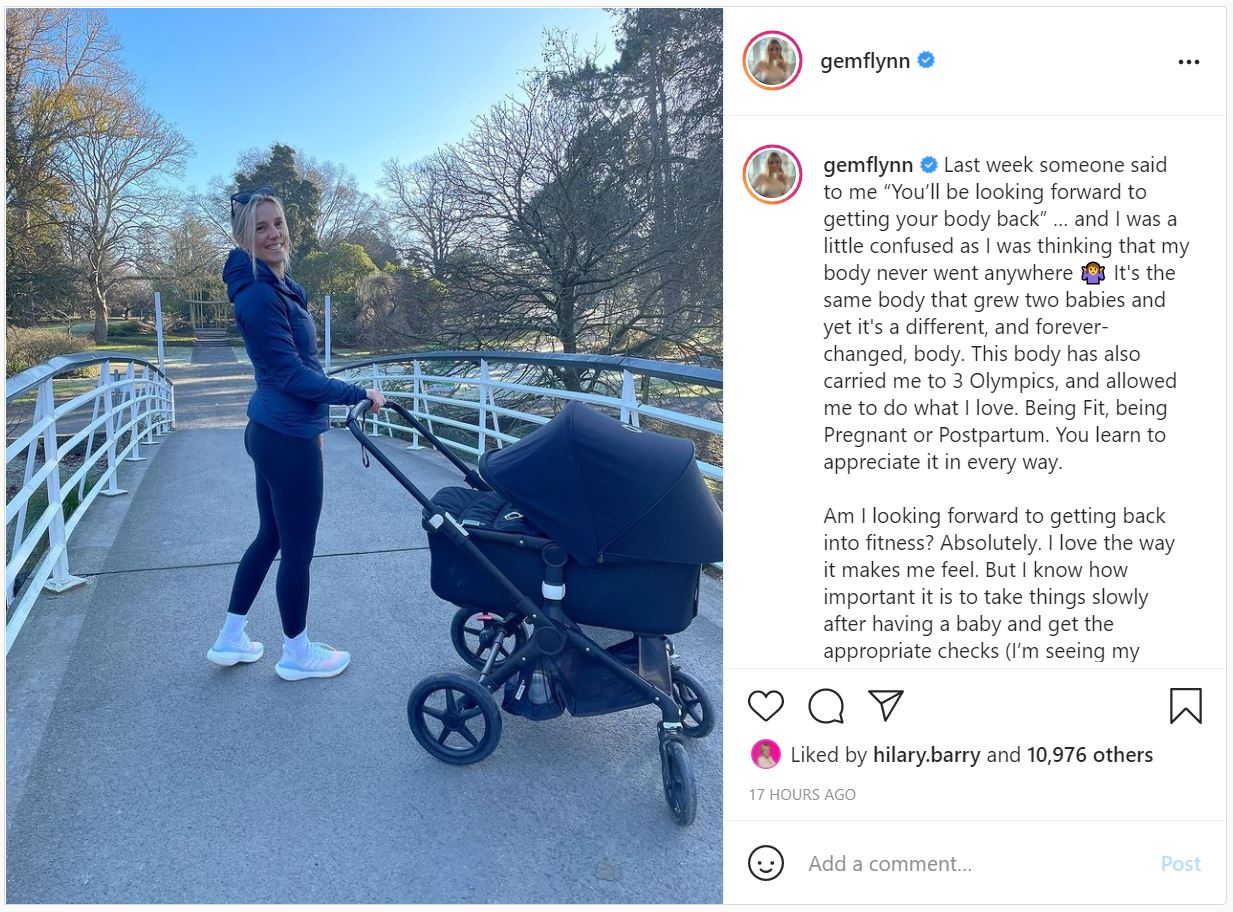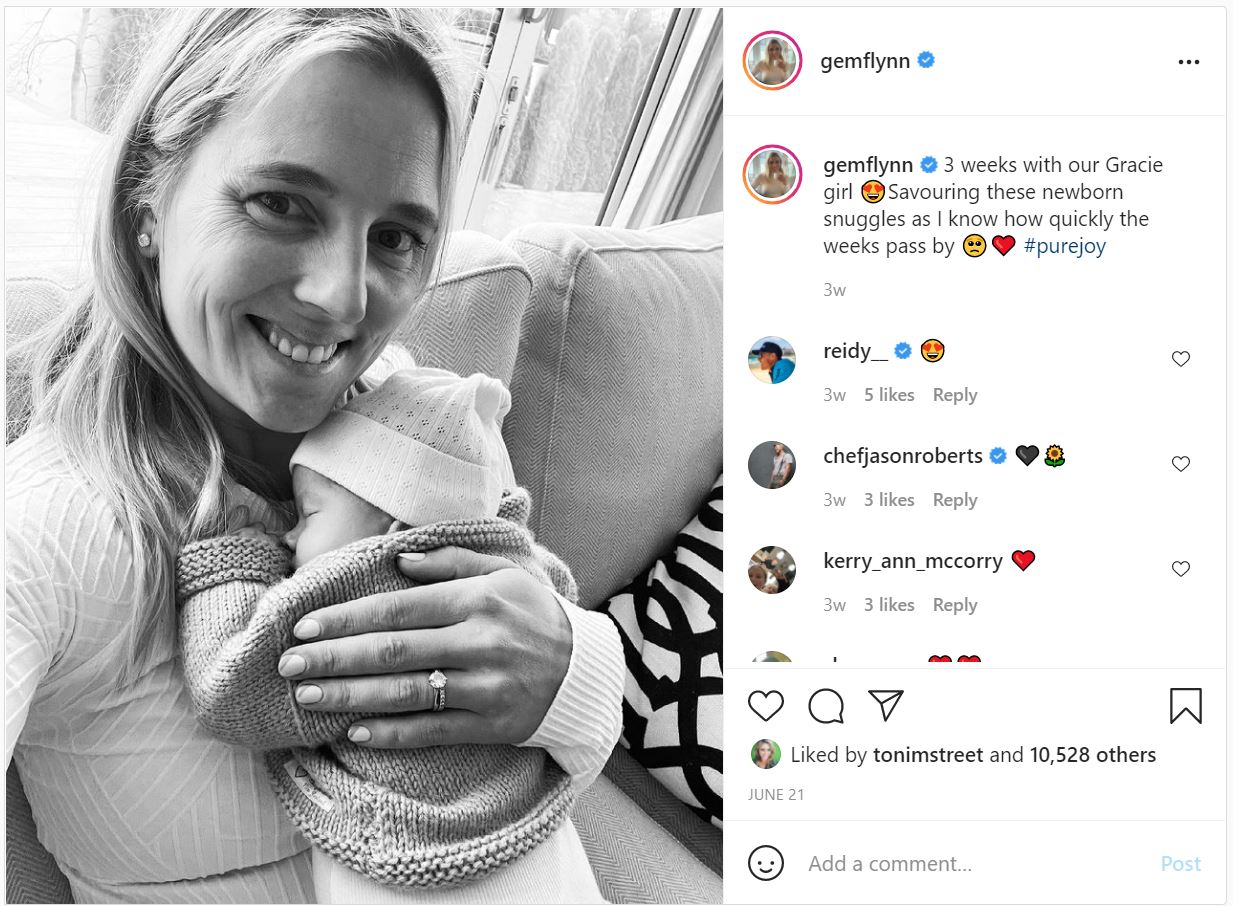
Taking to social media about the awkward encounter, ex-hockey player McCaw said: "Last week someone said to me 'You'll be looking forward to getting your body back'… and I was a little confused as I was thinking that my body never went anywhere."
This is McCaw's second child with her ex-All Black husband, Richie, McCaw. Their first child, Charlotte, turned 2 in December last year.
Continuing her post, McCaw discussed the concerns many women face in returning to exercise post childbirth and how there is a lot more to be considered in terms of post-partum care.
"It's the same body that grew two babies and yet it's a different, and forever-changed, body. This body has also carried me to 3 Olympics, and allowed me to do what I love. Being fit, being pregnant or postpartum. You learn to appreciate it in every way.
"Am I looking forward to getting back into fitness? Absolutely. I love the way it makes me feel. But I know how important it is to take things slowly after having a baby and get the appropriate checks (I'm seeing my Women's Health Physio next week)."

Alarming figures show that one in four women who give birth will end in loss of urinary or bowel control. For Māori women it's 47 per cent.
"I can't stress this enough ... Regardless of your 'birth' you should get a postnatal check, six weeks after your delivery! This is standard care in some countries but not here in NZ (but hopefully we can change this).
"And to the new Mums, in case you needed to hear this today, please don't feel pressured to 'look' a certain way, you've just carried a baby, your body should be appreciated & you're doing an amazing job."
McCaw's comments about postnatal checks is a strong one, as, while most women will get a general check-up from their GP at six weeks the assessment is largely cursory and most new mother's don't know what to look for in terms of complications from their own recovery.
McCaw is a vocal advocate for more thorough post-natal care, particularly around getting treatment for pelvic floor damage and diastasis recti, both of which can be made more severe with the wrong exercise.
McCaw's comments were met with support and appreciation from women all over New Zealand. Many pointed out how damaging the pressure to "bounce back" after childbirth can be.
"Love this! Thanks for sharing this Gemma SUCH an important message x," one supporter commented.
"So true!! Body comments are so disrespectful at any time in our lives, and worst during pregnancy and post-birth," posted another.
There were some comments that were not quite as in agreement with McCaw, with some pointing out that returning to your post-baby body is out of reach for some women, either due to physiological or practical reasons.
"If you're young, fit and healthy and still do that when pregnant it [your body] goes back to normal easy," posted one woman, while pointing out that "not everyone starts their pregnancy like ... [it] was no trouble for me either but it's not like that for everyone."
While others also pointed out that the post-baby body should be celebrated as many people are unable to have children and therefore will never be able to experience pregnancy or recovery, and comments focusing on motherhood can be triggering. One sensitive woman commented on Instagram: "The changes in our bodies are our tiger stripes, even without visible stretch marks we need to claim it. Those of us lucky enough to carry a baby should celebrate any change, there be countless women who would kill for the extra weight, loss skin, stretch marks etc."

"My experience is not something everyone is lucky enough to have," McCaw said to Parliament at the time.
"In stark contrast to my incredibly privileged and well-supported postnatal experience, I was told a story of a woman who last month welcomed a baby at the same hospital as Charlotte was born," she said.
McCaw said the woman lived no more than 15 minutes from her doorstep in temporary accommodation.
"She had escaped a violent family with literally no one there to support her.
"She was entirely alone."
McCaw said after being in hospital for two days with not one visitor her neighbour was then dropped back to the temporary accommodation on her own with her baby.
"I can't even begin to imagine the loneliness by that lack of support, especially after a C-section.
"We had vastly different experiences and based on statistics our outcomes will be different too."
McCaw wanted to encourage New Zealanders to "walk a mile in someone else's footsteps before you judge them" as part of a powerful public movement against maternal suicide.
When you have women going years suffering from incontinence, pain and other serious post-natal issues without receiving any publicly funded help it is clear how far New Zealand has to go in improving the level of care for new mothers all over the country.











